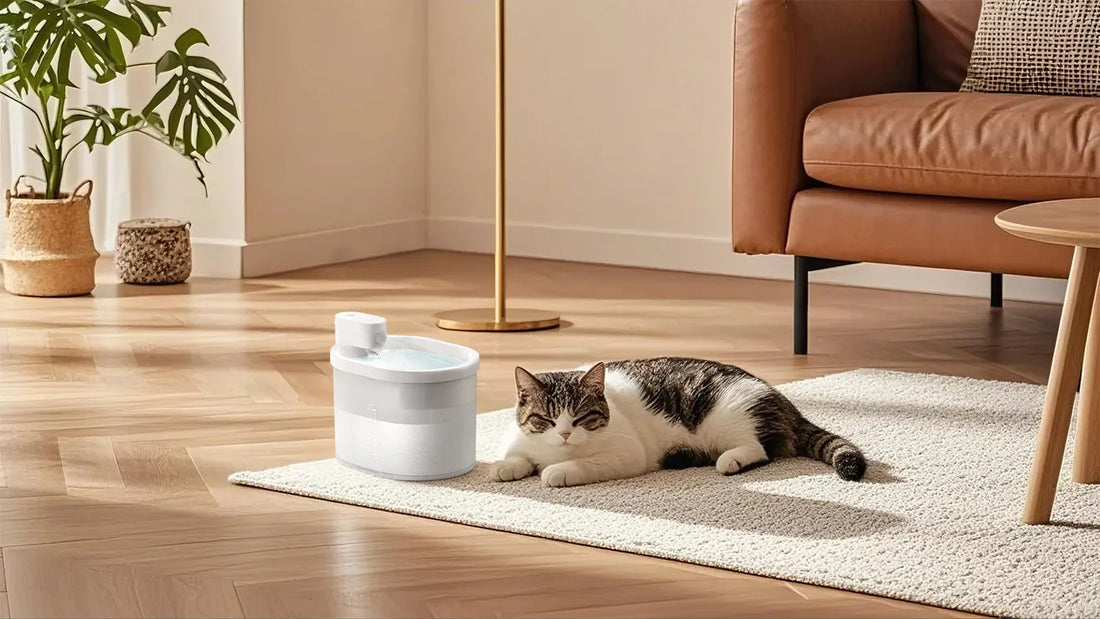Is your cat drinking and peeing a lot? While it might seem like a minor change in behavior, it could be a red flag for a serious health issue. Cats are creatures of habit, and any significant shift in their routine, such as increased thirst or urination, should not be ignored. Understanding the potential causes and knowing when to seek veterinary care can make all the difference in your cat's well-being.
Why Is My Cat Drinking and Peeing More Than Usual?
There are several reasons why your cat might be drinking and peeing excessively. Some of the most common causes include:
- Dehydration: Cats may drink more water if they are dehydrated, which can occur due to hot weather, illness, or insufficient water intake.
- Diabetes: Increased thirst and urination are hallmark symptoms of diabetes in cats. This condition occurs when the body cannot regulate blood sugar levels properly.
- Kidney Disease: Chronic kidney disease is a common issue in older cats and can lead to increased water consumption and urination.
- Urinary Tract Infections (UTIs): UTIs can cause discomfort and lead to more frequent urination.
- Hyperthyroidism: This condition, which results from an overactive thyroid gland, can cause increased thirst and urination.
Symptoms to Watch For
While increased drinking and peeing are the primary signs, other symptoms may accompany these changes. Keep an eye out for:
- Weight loss or gain
- Lethargy or decreased activity levels
- Changes in appetite
- Vomiting or diarrhea
- Unusual behavior, such as hiding or aggression
If you notice any of these symptoms, it's essential to consult your veterinarian for a thorough evaluation.
Diagnosing the Problem
To determine the cause of your cat's increased drinking and urination, your veterinarian will likely perform a series of tests. These may include:
- Blood Tests: To check for conditions like diabetes, kidney disease, or hyperthyroidism.
- Urinalysis: To assess kidney function and detect infections or other abnormalities.
- Imaging: X-rays or ultrasounds may be used to examine the kidneys, bladder, and other internal organs.
Based on the results, your vet will recommend an appropriate treatment plan.
How to Help Your Cat
While some conditions require medical intervention, there are steps you can take at home to support your cat's health:
- Provide Fresh Water: Ensure your cat has access to clean, fresh water at all times. Consider using a water fountain to encourage drinking.
- Monitor Diet: Feed your cat a balanced diet that meets their nutritional needs. Avoid foods high in sugar or salt, which can exacerbate certain conditions.
- Encourage Exercise: Regular physical activity can help maintain a healthy weight and support overall well-being.
- Reduce Stress: Stress can impact your cat's health, so create a calm and comfortable environment for them.
When to See a Vet
If your cat's increased drinking and peeing persist for more than a day or two, or if you notice any additional symptoms, it's crucial to seek veterinary care. Early diagnosis and treatment can prevent complications and improve your cat's quality of life.
Your cat's health is a top priority, and understanding the reasons behind their behavior is the first step in ensuring they stay happy and healthy. Don't wait—take action today to give your feline friend the care they deserve.













